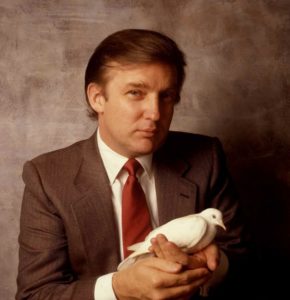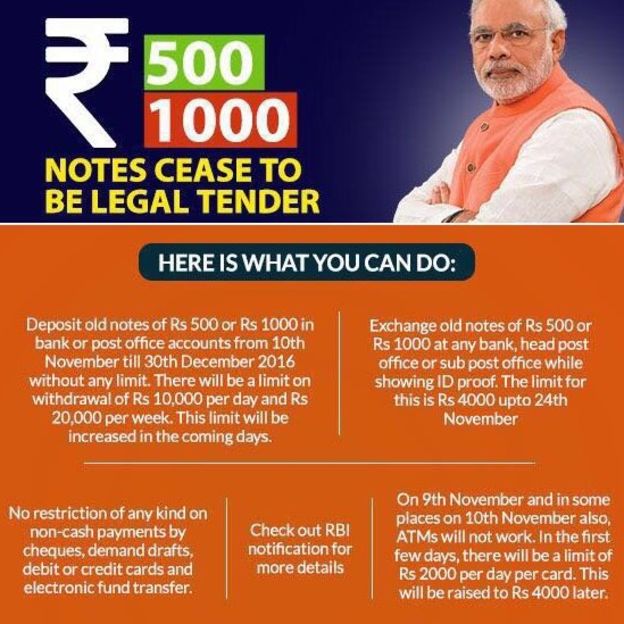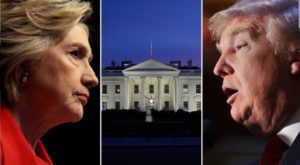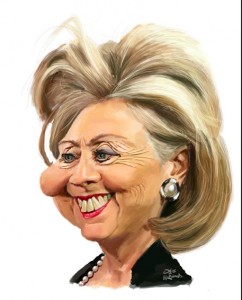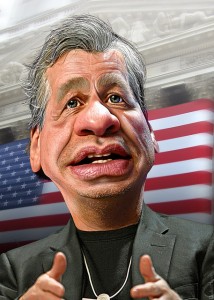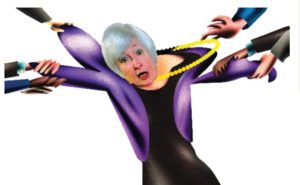Journalist Naomi Klein interprets the American election. The result reflects citzens’ rejection of neoliberalism. That worldview – fully embodied by Hillary Clinton and her machine – is no match for Trump-style extremism. The decision to run one against the other is what sealed our fate.
Here is what we need to understand: a hell of a lot of people are in pain. Under neoliberal policies of deregulation, privatization, austerity and corporate trade, their living standards have declined precipitously. They have lost jobs. They have lost pensions. They have lost much of the safety net that used to make these losses less frightening. They see a future for their kids even worse than their precarious present.
At the same time, they have witnessed the rise of the Davos class, a hyper-connected network of banking and tech billionaires, elected leaders who are awfully cosy with those interests, and Hollywood celebrities who make the whole thing seem unbearably glamorous. Success is a party to which they were not invited, and they know in their hearts that this rising wealth and power is somehow directly connected to their growing debts and powerlessness.
For the people who saw security and status as their birthright – and that means white men most of all – these losses are unbearable.
Donald Trump speaks directly to that pain. The Brexit campaign spoke to that pain. So do all of the rising far-right parties in Europe. They answer it with nostalgic nationalism and anger at remote economic bureaucracies – whether Washington, the North American free trade agreement the World Trade Organization or the EU. And of course, they answer it by bashing immigrants and people of color, vilifying Muslims, and degrading women. Elite neoliberalism has nothing to offer that pain, because neoliberalism unleashed the Davos class. People like Hillary and Bill Clinton are the toast of the Davos party. In truth, they threw the party.
Trump’s message was: “All is hell.” Clinton answered: “All is well.” But it’s not well – far from it.
A good chunk of Trump’s support could be peeled away if there were a genuine redistributive agenda on the table. An agenda to take on the billionaire class with more than rhetoric, and use the money for a green new deal. Such a plan could create a tidal wave of well-paying unionized jobs, bring badly needed resources and opportunities to communities of color, and insist that polluters should pay for workers to be retrained and fully included in this future.
It could fashion policies that fight institutionalized racism, economic inequality and climate change at the same time. It could take on bad trade deals and police violence, and honor indigenous people as the original protectors of the land, water and air.
Such a coalition is possible. Canada leads the way. This is the task ahead. The Democratic party needs to be either decisively wrested from pro-corporate neoliberals, or it needs to be abandoned. From Elizabeth Warren to Nina Turner, to the Occupy alumni who took the Bernie campaign supernova, there is a strong field of coalition-inspiring progressive leaders out there.
Let’s set aside whatever is keeping us apart and start right now.

